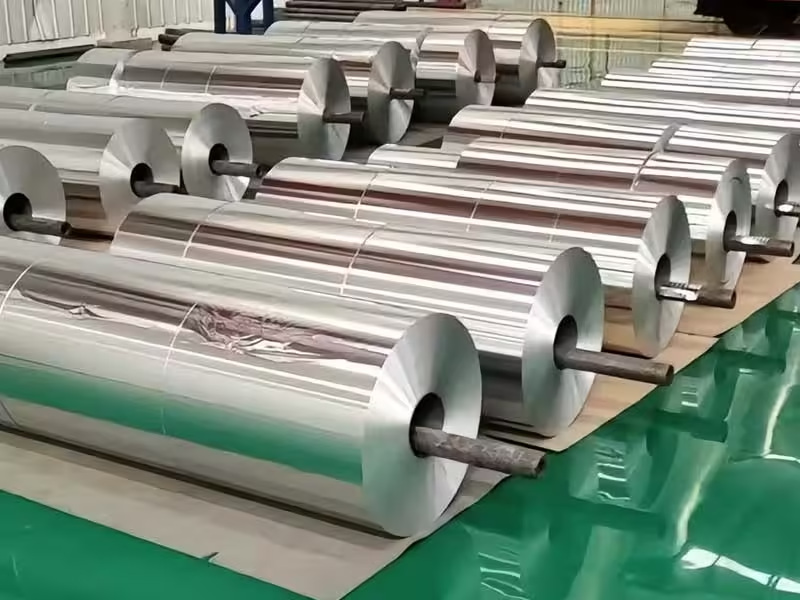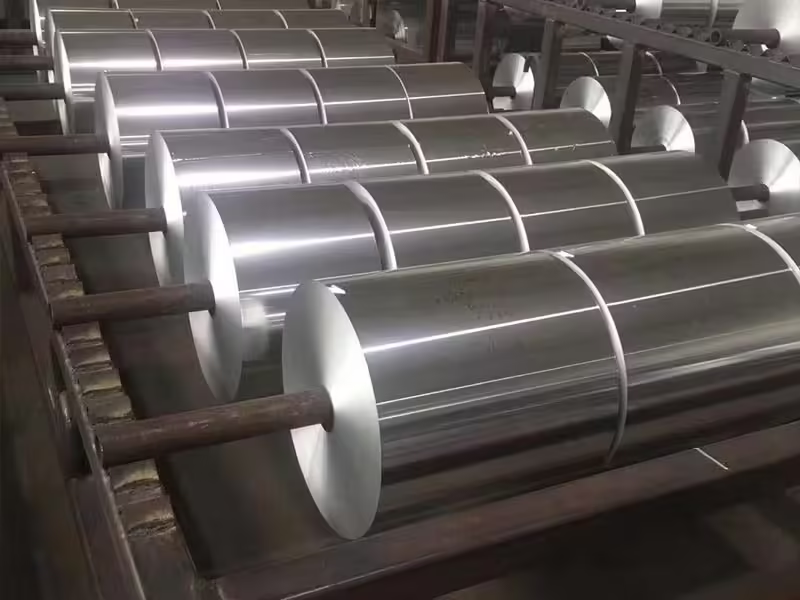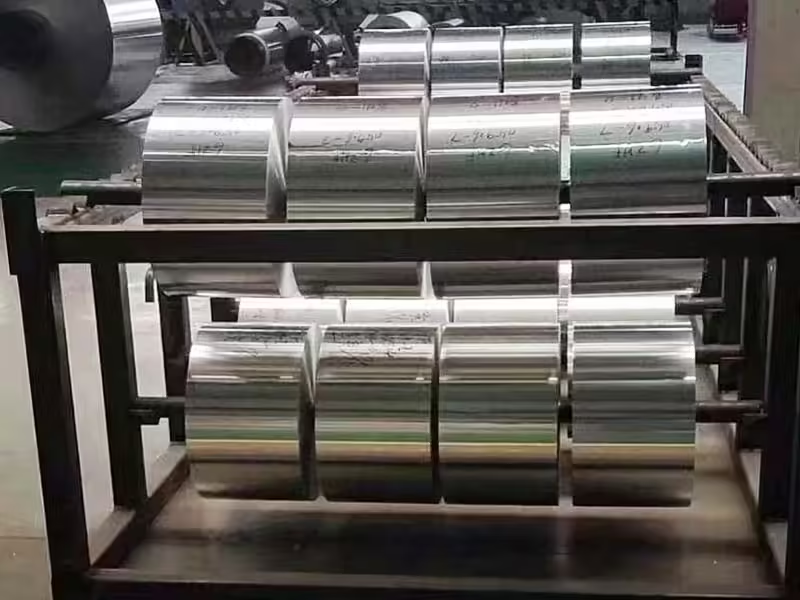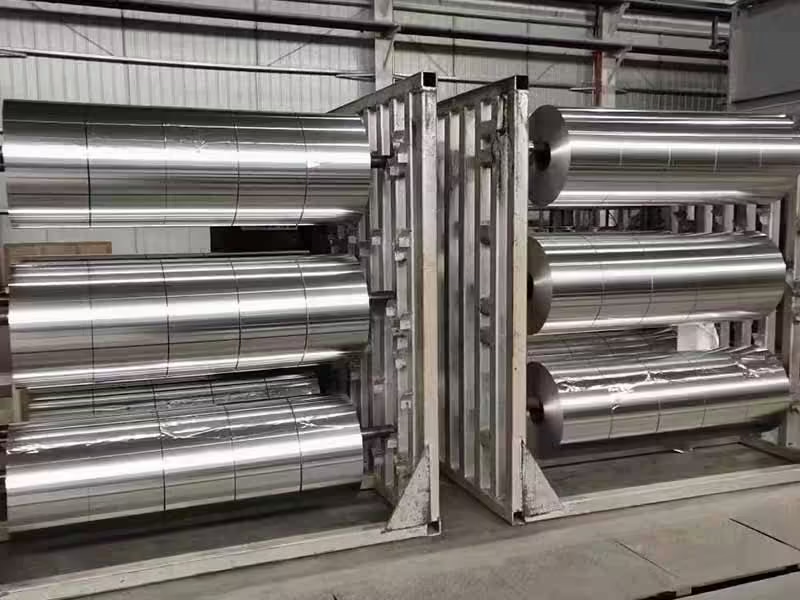Welcome to My Blog!
Before we dive into the content, I’d love for you to join me on my social media platforms where I share more insights, engage with the community, and post updates. Here’s how you can connect with me:
Facebook:https://www.facebook.com/profile.php?id=61571539990739
Now, let’s get started on our journey together. I hope you find the content here insightful, engaging, and valuable.
Table of Contents
Introduction

When you think of aluminum foil, your mind might drift to the kitchen, wrapping leftovers or lining baking trays. However, this versatile material plays a pivotal role in insulation across various industries. Aluminum foil metal, with its unique properties, has become a cornerstone in enhancing energy efficiency, reducing noise pollution, and protecting structures from environmental factors.
In this blog, we’ll delve into the reasons why aluminum foil metal stands out as an ideal insulation material, exploring its properties, applications, and benefits.
Understanding the Insulating Properties of Aluminum Foil Metal
High Thermal Reflectivity
One of the standout features of aluminum foil metal is its ability to reflect radiant heat. With a reflectivity rate of up to 95%, it effectively bounces heat back towards its source, minimizing heat transfer and enhancing thermal efficiency.
Low Emissivity
Emissivity refers to a material’s ability to emit absorbed heat. Aluminum foil metal boasts a low emissivity, meaning it doesn’t easily radiate heat, further solidifying its role as an effective insulator.
Barrier Properties
Beyond thermal insulation, aluminum foil metal acts as a barrier against moisture, air, and light. This impermeability ensures that the insulated space remains unaffected by external environmental factors, preserving the desired internal conditions.
Applications of Aluminum Foil Metal in Insulation


Building and Construction
In the construction industry, aluminum foil metal is commonly used in walls, roofs, and floors to enhance thermal insulation. Its reflective properties help maintain indoor temperatures, reducing the need for excessive heating or cooling.
HVAC Systems
Heating, ventilation, and air conditioning systems benefit from aluminum foil metal’s insulation capabilities. By wrapping ducts and pipes, it minimizes heat loss or gain, ensuring efficient system performance.
Automotive Industry
In vehicles, aluminum foil metal is used to insulate components, protecting them from heat and ensuring optimal performance. Its lightweight nature doesn’t add significant weight, making it ideal for automotive applications.
Aerospace Applications
The aerospace sector utilizes aluminum foil metal for its insulation needs, especially in spacecraft, where temperature regulation is crucial. Its ability to reflect heat and resist extreme temperatures makes it indispensable.
Food and Pharmaceutical Packaging
Aluminum foil metal’s barrier properties make it ideal for packaging perishable goods. It prevents moisture and light from affecting the contents, ensuring freshness and efficacy.
Comparative Analysis of Aluminum Foil Metal in Insulation
| Property | Benefit | Application |
|---|---|---|
| High Reflectivity | Reflects up to 95% of radiant heat | Building insulation, HVAC systems |
| Low Emissivity | Minimizes heat emission | Aerospace, automotive components |
| Moisture Barrier | Prevents moisture ingress | Food packaging, construction materials |
| Lightweight | Easy to handle and install | Automotive, construction |
| Durability | Resistant to corrosion and degradation | Long-term insulation solutions |
| Recyclability | Environmentally friendly | Sustainable building practices |
Advantages of Using Aluminum Foil Metal for Insulation

Energy Efficiency
By reflecting radiant heat, aluminum foil metal reduces the need for artificial heating or cooling, leading to significant energy savings.
Cost-Effective
Its durability and efficiency mean fewer replacements and maintenance, translating to cost savings over time.
Versatility
From homes to spacecraft, aluminum foil metal’s adaptability makes it suitable for a wide range of applications.
Environmental Impact
Being recyclable, it aligns with sustainable practices, reducing the environmental footprint.
Conclusion
Aluminum foil metal has proven itself as an indispensable material in the realm of insulation. Its unique combination of properties addresses the multifaceted challenges of thermal regulation, moisture control, and environmental sustainability. As industries and individuals alike seek efficient and eco-friendly solutions, aluminum foil metal stands out as a reliable choice.
FAQ
Can aluminum foil metal be used in combination with other insulation materials?
Yes, it often complements other materials, enhancing overall insulation performance.
Is aluminum foil metal suitable for outdoor insulation applications?
Absolutely. Its resistance to moisture and corrosion makes it ideal for outdoor use.
How does aluminum foil metal contribute to energy savings?
By reflecting radiant heat, it reduces the reliance on heating and cooling systems, leading to lower energy consumption.
Is aluminum foil metal environmentally friendly?
Yes, it’s recyclable and contributes to sustainable building practices.
Does the thickness of aluminum foil metal affect its insulation properties?
While thickness can influence durability, the reflective and barrier properties remain effective across various thicknesses.

